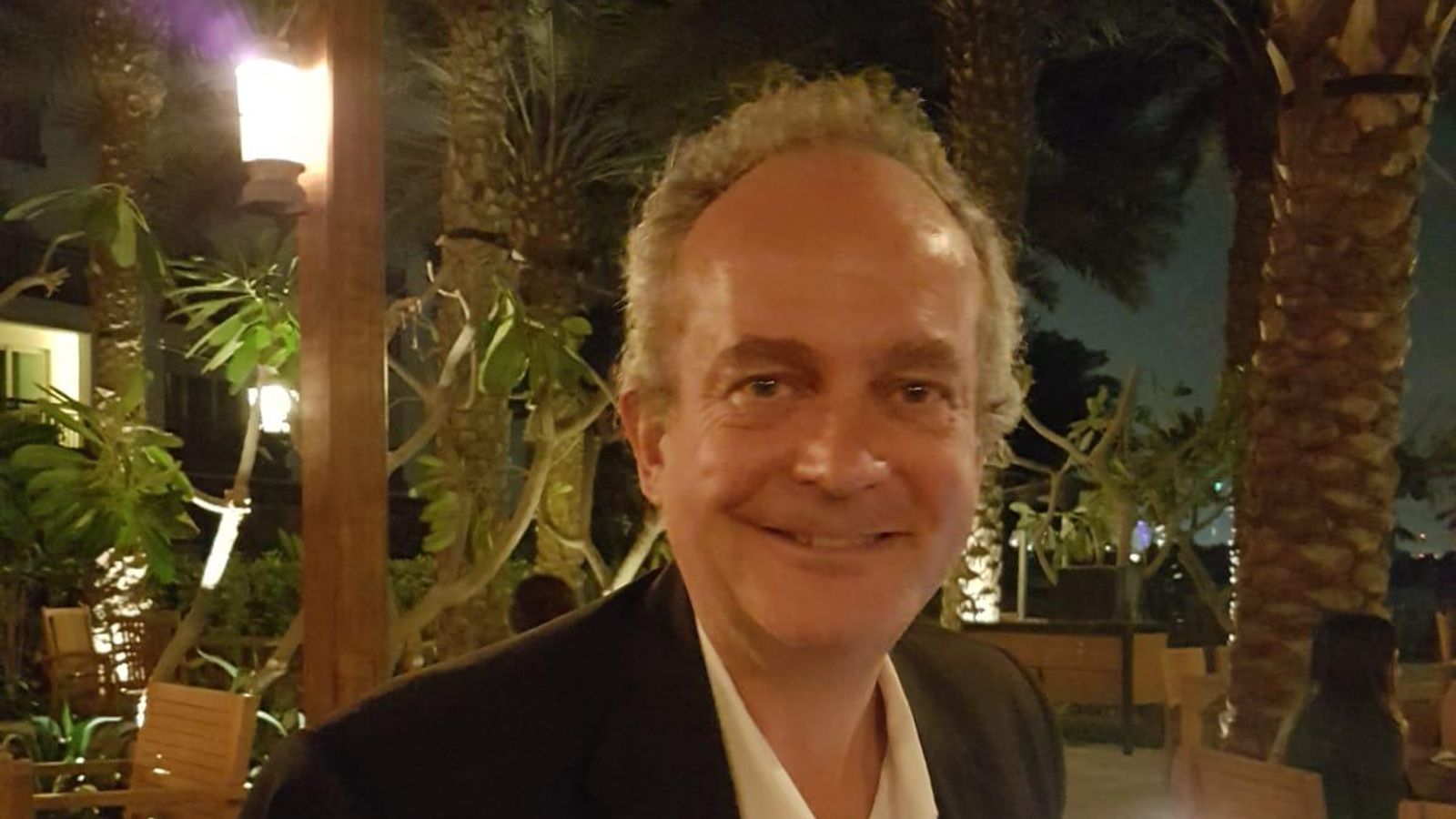[ad_1]
Working from home can sometimes feel like another world – but for Sanjeev Gupta this is literally true.
The professor is helping operate Nasa‘s Mars Perseverance rover…from his one-bed flat above a south London hair salon.
Were it not for the lockdown, the British geologist would be alongside other scientists at Nasa’s mission control in Pasadena, California. Instead, in a space-oddity, he is involved in controlling the robot explorer on the surface of the Red Planet from his sparse but tastefully furnished apartment in Lewisham.

Prof Sanjeev Gupta, pictured, is helping operate the Nasa Mars Perseverance rover from above a south London hair salon

Prof Gupta, who is a geologist, is part of the team to decide where the Perseverance rover should dig for samples in an effort to determine whether there was life on Mars
Hundreds of millions around the world watched Perseverance touch down on Mars just over a week ago, after its seven-month journey through space.
Prof Gupta, 55, a geology expert at London’s Imperial College, is one of the leading scientists on the project to bring rock samples back from the planet and discover whether it could support life billions of years ago.
Over the coming weeks, he and colleagues will begin mapping out tasks for the rover, directing it to spots to drill for samples to be transported back to Earth in 2027 by a separate UK-backed project.
He said: ‘I should be at the Jet Propulsion Laboratory in California, in a series of offices each one about three times bigger than this lounge, full of hundreds of scientists and engineers with their heads buried in laptops surrounded by large screens.
‘Nasa’s headquarters is certainly a far cry from a one-bedroom flat.’

Many of the scientists associated with the massive project are being forced to work from home because of the ongoing pandemic

Prof Gupta, a PhD from Oxford University’s St Cross College, has rented the apartment so his wife and children can enjoy undisturbed sleep in the nearby family home while he works through the night with his colleagues in the United States
He added: ‘The teenage son of a friend of mine asked me if I could order the rover to do a wheelie for him. I told him, ‘Not with my motoring skills’.’ Many of the 400 scientists on the £3billion life-on-Mars mission are working from home because of travel restrictions.
Prof Gupta, a PhD from Oxford University’s St Cross College, has rented the apartment so his wife and children can enjoy undisturbed sleep in the nearby family home while he works through the night.
A Mars day is 40 minutes longer than a day on Earth, and the team is working round the clock, ‘so it is like being permanently jet-lagged’, he said.
He followed the landing on February 18 from his Lewisham nerve centre using five computers – two Apple Macs, an iPad and two other screens for Zoom-style meetings with fellow scientists.

According to Prof Gupta, a day on Mars is 40 minutes longer than on earth
‘Perseverance landed in Jezero Crater, which is a really good spot, I think, because it is an ancient lake formed by a meteorite impact billions of years ago,’ said Prof Gupta. ‘We can see an ancient river valley, and deltas. Obviously there is no water there now, but we will test if there was water in the past.
‘Basically I and the team have meetings every day and talk about what experiments we will want it to do, where to collect the samples from.
‘It will be a few weeks before it turns a wheel. Then it will be able to move up to hundreds of metres in a day and will travel tens of kilometres from its current spot. We are looking to where to direct it to exciting-looking rock formations, and the way it will get there.’
Prof Gupta, who has previously mapped the sea floor in the English Channel using sonar, added: ‘Data comes from satellites orbiting Mars and it all depends on their positioning when they can deliver the data.
‘Our working patterns are all over the place. It takes 11 minutes for the signals to get back from Mars, because it’s around 150 million miles away.
‘Yet due to the pandemic, I cannot be where I am supposed to be – in California, a mere 5,500 miles from here.
‘Still, it’s a lovely little flat, even if it isn’t the typical image of one of the nerve centres of space exploration.’
[ad_2]
Source link


